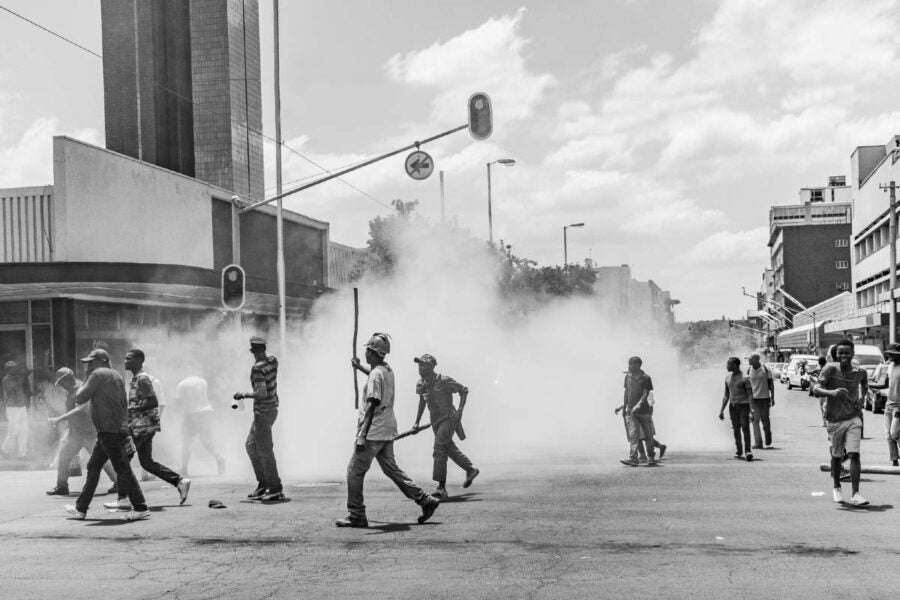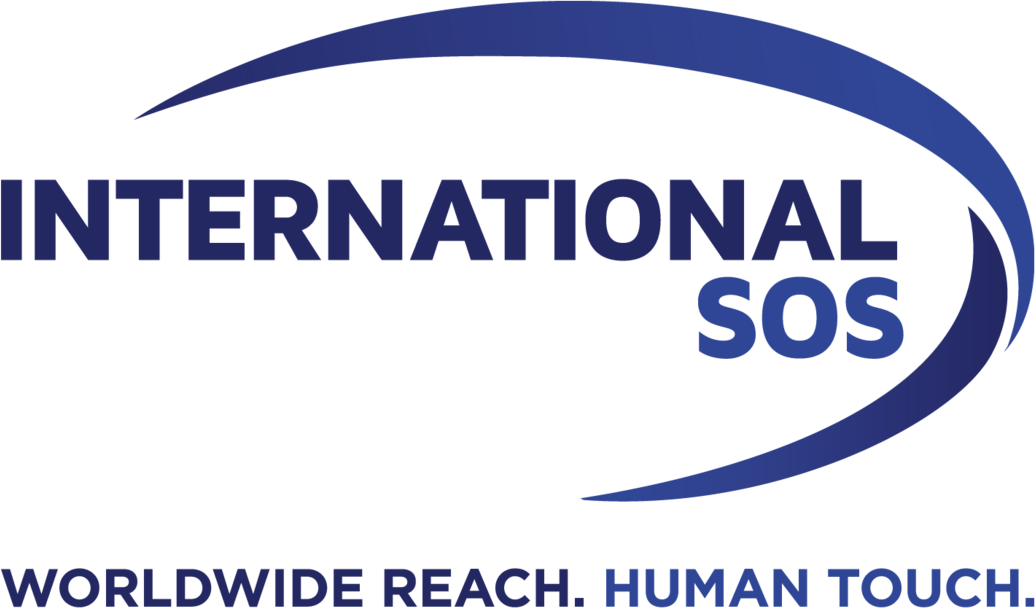
In today’s volatile and unpredictable world, business disruptions are both inevitable and relentless. Over the past few months alone, organisations have navigated crises on multiple fronts; extreme weather events are becoming increasingly frequent and disruptive. Geopolitical conflicts are reshaping global markets and societies. Civil unrest can erupt anywhere, at any time, with profound consequences.
“There’s no such thing as an isolated incident anymore. The risk landscape is connected, congested, and events unfold at high velocity,” says Giles Hill, Group Head of Global Security Services at International SOS, an industry leader in health & security services for global organisations. With 35 years of military experience and having led teams in multiple crises around the world, Hill now leads a global team dedicated to helping organisations anticipate and prepare for crises - ensuring they are ready to respond and recover when the worst happens – and build resilience.
While growing uncertainty has made some businesses more cautious about sending employees overseas, the reality is that risk is everywhere - both at home and abroad. Yet for organisations looking to grow and succeed, withdrawal is not an option. “There’s no reverse gear now,” Hill asserts. “This disruptive and volatile context isn’t a short-term blip or a peak - it’s the new normal and organisations can’t avoid the risks.”
This shifting landscape has placed chief security officers (CSOs) and their teams under intense scrutiny. They are expected to maintain constant vigilance, to possess the latest intelligence and to be ready to protect people and assets 24/7. While no security team can foresee every emerging risk, they must be prepared to respond with speed, accuracy and confidence. Those who stay ahead of the curve - developing agile, proactive strategies - will be best placed to safeguard their organisations. For those who fail to prepare, success may no longer be an option.
“You can’t be caught off guard. You can’t be surprised in these environments. You need to be able to react quickly,” adds Hill’s colleague Dave Komendat, senior security advisor at International SOS and former VP & CSO at The Boeing Company. Backed by 38 years of experience in navigating complex and high-risk operating conditions, Komendat is clear: you need to be able to mobilise and protect your people if they are impacted regardless of where they are – whether it’s next door to the office or somewhere across the globe.
“That’s Duty of Care, and employees expect that there’s something coming that’s going to help them,” he says. “Robust health and security risk management is more critical than ever. Companies must scrutinise risks carefully and be ready to make swift, informed decisions.”
“The operating environment for many businesses has never felt more uncomfortable, more unpredictable or more complicated,” adds Hill. “For all organisations, there’s an increasing challenge to comprehend what’s going on and to adjust to keep pace with the rapid developments in risk.”
For Komendat, how companies respond in a crisis is like anything else: the more you practise, the better you play. And he is candid in his assessment of those that fall short:
“If you aren’t intentional about practising, then you are more likely to be a business that gets caught flat-footed when a situation arises.”
Synergies to support success
For International SOS, operating in volatile environments is routine. With 13,000 employees, including security, medical, logistics and digital experts, supporting clients across 90 countries, the organisation provides critical expertise. From complementing and strengthening in-house global security operations centres to providing a fully outsourced service, International SOS helps organisations operate with greater confidence in keeping workforces safe.
“We do this every day and everywhere. If you’re only doing it once every two years, the likelihood is you’re not probably doing it very well,” Komendat says.
We do this every day and everywhere. If you’re only doing it once every two years, the likelihood is you’re not probably doing it very well
Hill recalls an incident in late 2024 when a large international company had employees and their families in Lebanon amid escalating geopolitical conflict. Within 48 hours of contacting International SOS’s Dubai Assistance Centre, the affected individuals were evacuated on a chartered flight.
“It wasn’t just about booking a flight. It was understanding the totality of the problem and having the means to address all the components of a solution, from securing safe transport, tracking personnel movements and dynamic threats, and ensuring safe accommodation,” says Hill. “It required a range of skills, experience and, critically, access to trusted local experts and resources on the ground.”
Health, safety and security risks extend beyond international travel. Natural disasters such as the Californian wildfires present significant challenges, too.
“Among the requests made to International SOS was the need for urgent emergency accommodation relief. Within days, the International SOS team had stood up a bespoke programme sourcing temporary accommodations for staff, their families and pets within commuting distance of the office for a large media and entertainment company. This was especially important in an area where housing was in low supply and high demand,” says Komendat.
Breaking old habits
“In the past, there would be some pre-indicators of an issue, allowing time for thoughtful decision-making. That’s not really the case now,” says Komendat.
“Today, crises unfold with increasing frequency - In general, you’re going to have multiple issues in multiple regions happening concurrently. You need to prioritise resources and determine where to focus time, energy and money first,” he adds.
Recognising internal limitations is critical. Businesses must know when to seek external support, whether from security providers or peer organisations operating in the same region.
“If there’s been a positive to all of this, it’s that collaboration between CSOs—which has always been high—is now exceptional,” says Komendat. “Everyone understands that no one has the resources to handle everything alone.”
By working together, security leaders can solve urgent problems collectively, from securing transport for stranded employees to providing local support networks.
“If a peer reaches out and says they need help, calls will happen organically between security professionals,” Komendat says. “While these companies might compete in business, within the security community they never compete. It’s always about taking care of people first.”
Tech-driven transformation
Technology plays a pivotal role in risk management, enabling businesses to stay in close contact with clients, partners and employees. AI, in particular, is revolutionising security operations, aiding risk forecasting, crisis scenario planning and real-time intelligence gathering from news and social media.
“AI allows us to find intelligence needles in the haystack. There’s a lot of noise out there, and it can be overwhelming,” says Komendat.
Yet despite AI’s capabilities, human judgement remains irreplaceable, particularly in time-sensitive situations where lives are at stake.
“In a crisis you need to find the truth and find it quickly. In my military career when I wanted to know the truth, I always relied on a human being close to the problem,” says Hill. “While AI is valuable, access to ‘boots on the ground’ is critical for making life-or-death decisions.”
International SOS prides itself on having an unrivalled presence around the world.
“With our large network of reliable partners, we don’t have to rely solely on technology for understanding. We incorporate it of course, but as part of a powerful human-technological mix to provide actionable intelligence to support decision makers,” says Hill.
Leveraging leadership
While the risks in security management are greater than ever, so too are the opportunities.
“The need to protect workforces—whether domestically or overseas, in places where risks can arise within hours—is an opportunity to update old practices, forge new relationships and develop relevant structures and training,” says Hill.
Establishing partnerships with providers such as International SOS ensures businesses receive information and support at the speed they require, equipping them to respond effectively to crises.
“It’s a challenging and demanding time,” says Hill. “However, those who engage in thorough preparation and analysis can and will reduce their risks, protect their people, make better decisions and ultimately gain a competitive edge.”
To find out more about ensuring the health and safety of your employees in a changing world, visit International SOS

In today’s volatile and unpredictable world, business disruptions are both inevitable and relentless. Over the past few months alone, organisations have navigated crises on multiple fronts; extreme weather events are becoming increasingly frequent and disruptive. Geopolitical conflicts are reshaping global markets and societies. Civil unrest can erupt anywhere, at any time, with profound consequences.
“There’s no such thing as an isolated incident anymore. The risk landscape is connected, congested, and events unfold at high velocity,” says Giles Hill, Group Head of Global Security Services at International SOS, an industry leader in health & security services for global organisations. With 35 years of military experience and having led teams in multiple crises around the world, Hill now leads a global team dedicated to helping organisations anticipate and prepare for crises - ensuring they are ready to respond and recover when the worst happens – and build resilience.
While growing uncertainty has made some businesses more cautious about sending employees overseas, the reality is that risk is everywhere - both at home and abroad. Yet for organisations looking to grow and succeed, withdrawal is not an option. “There’s no reverse gear now,” Hill asserts. “This disruptive and volatile context isn’t a short-term blip or a peak - it’s the new normal and organisations can’t avoid the risks.”

